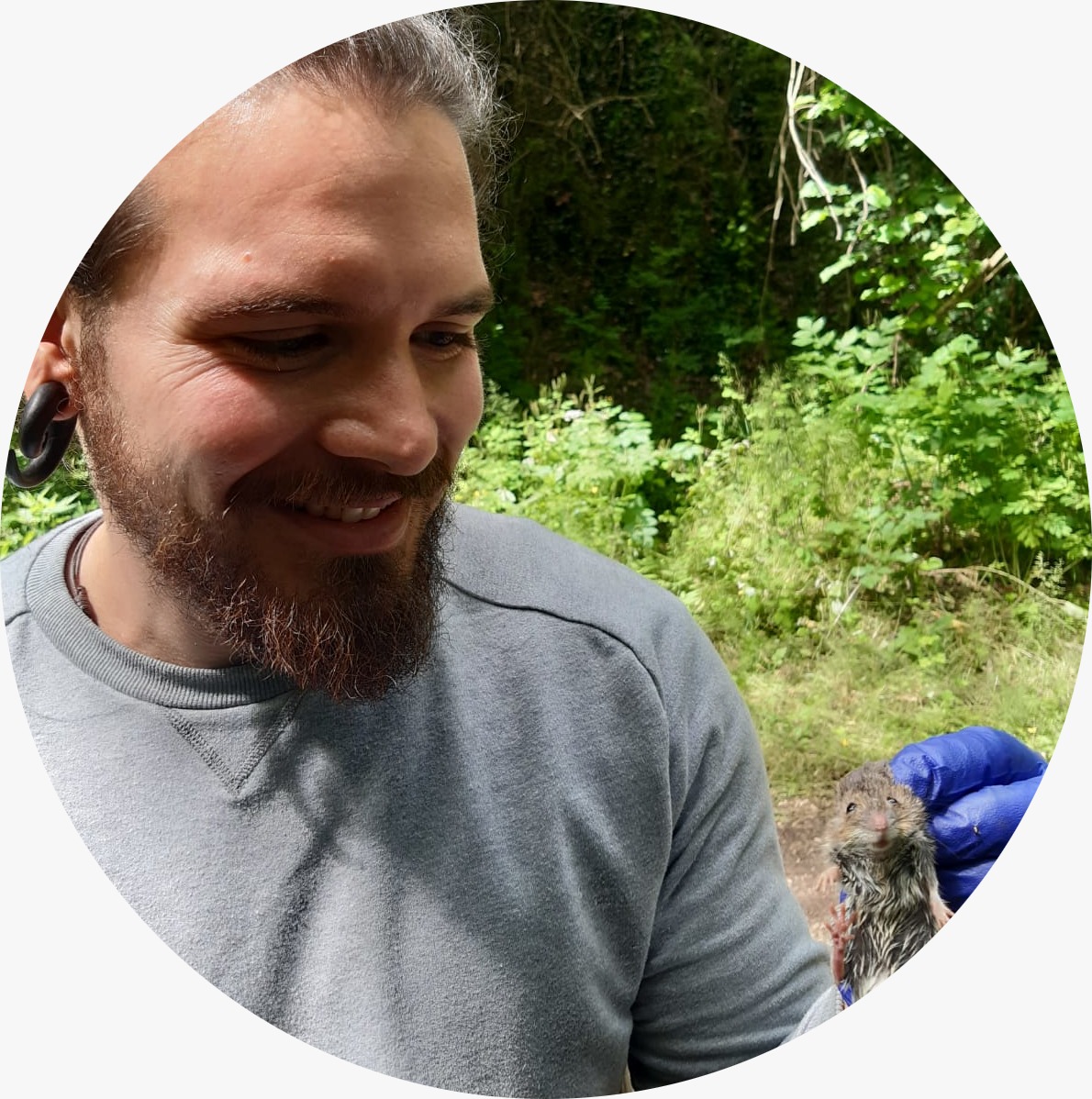
Llanos-Guerrero César
César Llanos-Guerrero began his academic journey by graduating in Sports Sciences from the University of Alcalá de Henares in 2017. Driven by his fascination for Biology, he furthered his education by obtaining a degree in this discipline from the University of Salamanca in 2022.
During his university years, César collaborated on various research projects focused on mammal ecology, particularly in the study of bats, small mammals, and carnivores. His bachelor's thesis involved a comprehensive 4-year study of the ecology and diversity of the mesocarnivore community, utilizing occupancy models to better understand their population dynamics.
Subsequently, during his Master's degree in Terrestrial Ecology at the Autonomous University of Barcelona, he joined the BiBio Group (Biodiversity and Bioindicators) at the Natural Sciences Museum of Granollers in 2022. He gained valuable research experience in the field of mammal ecology, participated in the monitoring of different species, and contributed to the acoustic analysis of edible dormice. His Master's thesis focused on the population response of small mammals to seed availability in Mediterranean ecosystems.
Currently, César is a PhD student focusing on the impact of land abandonment on mammal diversity in the Mediterranean region. His research aims to understand how changes in land use and management influence mammal populations and ecosystems.
Previously, he worked as a technician in the Dormouse project and the SEMICE project, where he monitored garden dormice (Eliomys quercinus) and semiaquatic small mammals (Neomys sp., Arvicola sapidus, and Galemys pyrenaicus), while also providing support for the monitoring of edible dormice (Glis glis) and common small mammals.
With a solid academic background and research experience, César Llanos-Guerrero is committed to the study and conservation of mammals and hopes to contribute to the advancement of knowledge in this field.



